Related Information
History
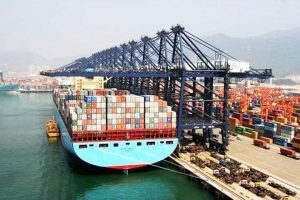
Formal Collaboration in the Shipping and Maritime Sector for the States in the Eastern and Southern Africa was initiated by the founding fathers of the States of Kenya, Tanzania, Uganda and Zambia after regional Economies faced adverse conditions in Shipping and International Trade which were beyond their control, and which each of the States would not handle individually due to the international nature and complexities of issues involved.
This collaboration, which started in 1967 on an ad hoc basis using a Standing Committee of representatives, was later formalized through establishment of a Secretariat in 1974 and a Treaty in 1987. The primary Mandate of the Organization was to advise the governments on the best ways to address the soaring freight rates and other adverse conditions in international trade that impacted negatively on Shipping and Maritime trade and to carry out several functions on their behalf.
ISCOS then operated mainly as a government-to-government body until 2006 when the Organisation transformed to take care of the changing dynamics in Shipping and International trade, accommodate the increasing role of the private sector in facilitation of Shipping and freight logistics and take cognizance of the need to promote trade across inland water bodies.
The operations of the Organisation now bring together both Governments and the private sector and ISCOS coordinates engagements with and amongst various stakeholders in Shipping and Maritime Transport including Governments, Maritime Administrations, Shippers Councils, Freight forwarders, Ports and Port Administrations, Maritime Training Institutions, Ship Owners, Regional and Multinational Service Providers and other stakeholders in order to achieve seamless connectivity in the Shipping and Maritime Trade across the Region.
Over 90% of the Region’s International Trade is Indeed transported by sea. Due to the shared Maritime bodies, facilities, multinational service providers and overseas trading partners and regimes, and therefore the common Maritime Interests, challenges and Aspirations, African States using the Indian Ocean as their maritime passage for International Trade have taken note of increased need for collaboration in this Complex, International, high expenditure and Capital intensive sector and have committed to using ISCOS’ existing framework to work together in order to have their Maritime trade Interests driven in structured, coherent, unified and more effective manner.
In line with this commitment, a number of regional states are now at various levels of formalising their Membership to the Organisation, and the Democratic Republic of Congo (DRC) completed her processes and joined ISCOS Membership in September, 2022. The Organisation is also rebranding into a Maritime Organsation for the Eastern, Southern and Nothern Africa in line with this scope and mandate.
Secretary General
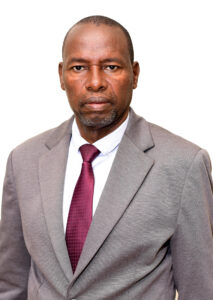
Appointed ISCOS Secretary General in January 2020, Mr. Daniel Mwanza Kiange took up the executive leadership of the region’s major Maritime body with over 24 years of experience in Trade Logistics, Shipping, Port Operations, and Medium and Top Management of the Maritime and Trade Logistics Sectors. With a combination of hands on experience from the private and public sector, Mr. Kiange possess vast knowledge and expertise in the development and implementation of Systems, Strategies and Polices.
Mr. Kiange has played key roles in the development and implementation of various Trade facilitation platforms and Systems in the region and has been part of several National and Regional and international undertakings and initiatives on Trade Facilitation and investment, Policy harmonization, Strategic planning and Management of Sea Ports and their extensions, Development and implementation of Key performance Indicators (KPIs) in the Maritime Sector, Regional economic integration and policy harmonization, as well as improvements in performance of Trade corridors of the region, among others. He has also played key roles in the understudying and Automation of various Shipping and Trade Logistics process and platforms in the region.
Mr. Kiange is a holder of a Masters of Business Administration (MBA) from the University of Nairobi and a Certified Internal Systems Auditor (CISA) from the Institute of information Systems Audit and Control Association (ISACA). He also holds a Prince 2 Practitioner Certificate in Project Management from APMG International Axelos, a Senior Management Certificate from the Kenya School of Government and Strategic Leadership Development Program (SLDP) from the same institution, and a Diploma in Port Operations from the ICSP in addition to several other academic and professional qualifications.
Institutional Framework
The Assembly

The Assembly is the highest Organ of the Organization whose full Membership are the Ministers responsible for Maritime Transport in the Member States, or any other Ministers or Plenipotentiaries designated by the respective Governments.
The Assembly is responsible for formulating general policies of the Organization and determining appropriate ways and means by which the Organization can achieve its objectives.
The Co-ordination Committee

The Coordination Committee is constituted by Permanent/Principle Secretaries (or their equivalent) in Ministries responsible for Maritime Transport matters in the respective Member States or their designated representatives who are senior officers of Government.
The Mandate of the Coordination Committee is to Coordinate the activities and functions of the Technical Committees and prepare Technical and Administrative Reports for the Assembly.
Technical Committees

Technical Committees comprise officers from the Member States and Associate member organizations who are experts in the relevant field of the Committee. The Mandate of the Technical Committees to Review and Generate Administrative and Technical Programmes of the Organization and to prepare Reports for the Coordination Committee.
There are four technical committees:
- Technical Committee on Finance, Administration and Resource Mobilization;
- Technical Committee on Trade Facilitation;
- Technical Committee on Maritime Safety, Security and Marine Environment;
- Technical Committee on Legal, Membership and Credentials, and International Relations.
The Secretariat
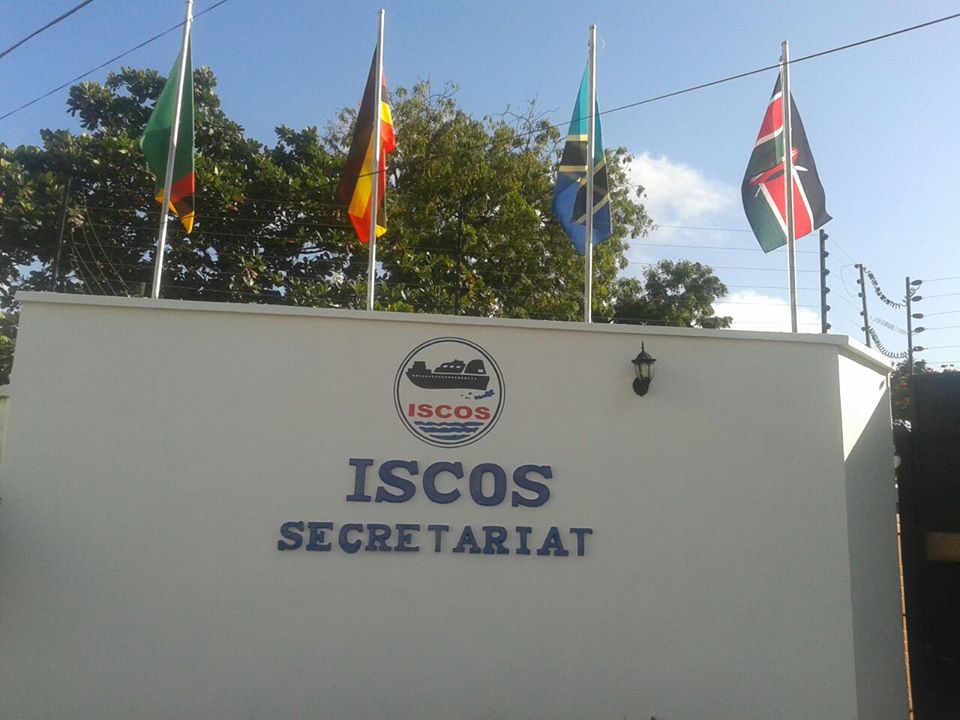
The Secretariat is the Administrative Organ of the organization headed by the Secretary General appointed by the Assembly. Its mandate is to coordinate and implement programmes and activities of the Organization.
Vision Statement
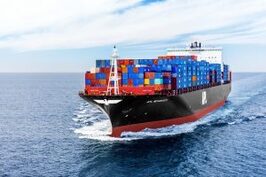 Africa’s Centre of Excellence for Shipping and Maritime Matters.
Africa’s Centre of Excellence for Shipping and Maritime Matters.
Mission Statement
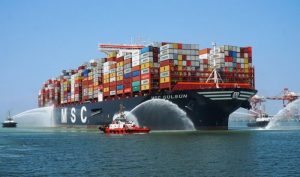 To Promote and Advocate for Efficient and Competitive Shipping and Maritime Services in Eastern, Southern and Northern Africa.
To Promote and Advocate for Efficient and Competitive Shipping and Maritime Services in Eastern, Southern and Northern Africa.
MANDATE
ISCOS’ MANDATE IS TO:
• Promote, Protect and Coordinate the Shipping and Maritime Interests of its Members in the Eastern, Southern and Northern Africa,
• Advocate for Competitive Shipping and Maritime services in the Region
• Study, Advise on and Support the development of the Shipping and Maritime sectors of the Contracting Parties.
• Undertake Industry research and disseminate Information and Advisories on emerging matters of Policy and Practice in the industry.
• Facilitate the effective representation of Land Linked States in Coastal shipping services and enable a Coordinated Interface between Land linked and Coastal States.
• Organize and Capacity-build the Shipping and Maritime Sector.
• Support the Development and Implementation of National and Regional Shipping and Maritime Initiatives.
• Coordinate matters of Safety and Security of Maritime bodies and facilities
• Promote Investments in the Shipping and Maritime sector.
• Enable and facilitate structured collaboration and Coordination of players in the sector.
• Facilitate the accession to and implementation of International Maritime Conventions and Agreements.
• Study and advise on opportunities of Maritime connectivity between Regional States, Promote Maritime Trade in the Region and continually advocate for borderless Shipping in order to enhance Shipping and Intra Regional Maritime Trade.
• Assist Contracting parties especially the Land linked States to demystify the Maritime concept and connect to the International shipping world.
• Promote Maritime Training and the uptake of Maritime carers and building capacity for the Maritime training institutions and professionals.
• Promote Shipping and trade across inland water bodies and Coordinate Riparian States in the effective and efficient use of shared inland water bodies for transport and trade.
• Liaise with other key stakeholders (Public and Private) in promotion of the African Maritime agenda.
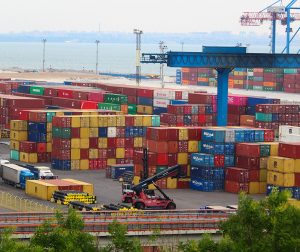
Contact Us

INTERGOVERNMENTAL STANDING COMMITTEE ON SHIPPING
ISCOS Secretariat
![]() Nyali, Palm Drive, Off Links Road
Nyali, Palm Drive, Off Links Road
![]() P.O. Box 89112 – 80100
P.O. Box 89112 – 80100
![]() Mombasa, Kenya
Mombasa, Kenya
![]() +254 722 207940/ +254 202 332670
+254 722 207940/ +254 202 332670
![]() [email protected]
[email protected]
![]() www.iscosafricashipping.org
www.iscosafricashipping.org




